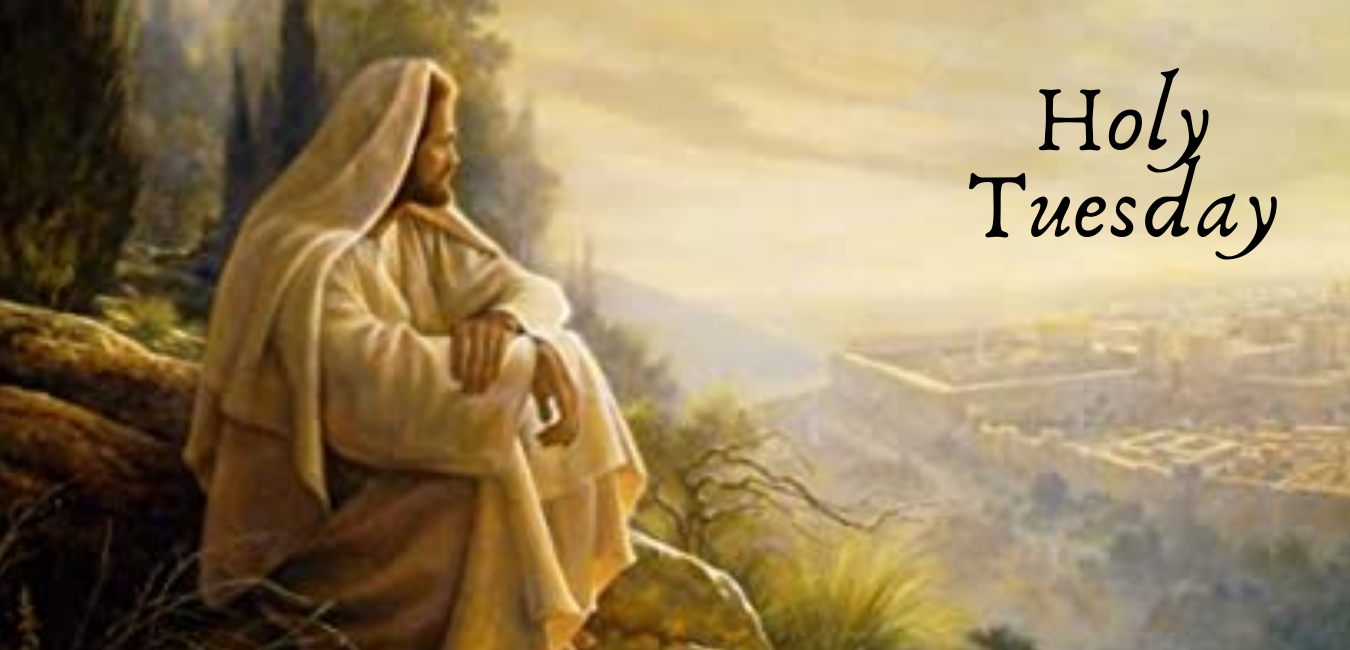Before you begin, pray and ask God to open your heart. Listen to the following worship songs, sing and worship God.
Holy Tuesday – Day of Controversy
On Tuesday, Jesus would simultaneously condemn the religious authorities while confirming His deity. When He cleansed the Temple on Monday, this caused the Pharisees to question His right to do “these things”. Jesus’ authority did not come from religious leaders, they wanted to know who provided Him with such authority.
They began to ask by whose power He had been given such authority. They believed that if He admitted His power came from God, then they would be able to charge him with blasphemy and arrest Him. But Jesus knew their motives. He agreed to answer their questions, if they answered His questions. He asked them if John the Baptist’s work was human, or divine. If his teachings were divine, then it would affirm Jesus divine. If human, the followers of John the Baptist would riot. It was the Sanhedrin’s responsibility to know the difference between true and false prophets, yet they admitted they did not know. Their question for Jesus remained unanswered.
On this day, the conspiracies to trap Jesus escalated. The religious leaders had one goal: to get rid of Jesus. If it meant cooperating with their enemies, then it would be justified if they were successful. The Pharisees opposed Rome – whose intrusion on the Jewish way of life, the Herodians – supporters of Herod the Great, and the Sadducees – religious liberals who denied a resurrection, angels, or spirits attempted to discredit Jesus during this time. But Jesus would not remain silent:
- Tribute to Caesar – Aware of their hypocrisy, Jesus reminded the Pharisees and Herodians that a sphere of authority belongs to God. Man has responsibilities in both political and spiritual matters.
- Marriage at the Resurrection – In response to their fictitious story of seven brothers, Jesus revealed the Sadducees’ ignorance of the Scriptures and God’s power to overcome death and give life.
- Whose Son is Christ – Jesus questioned the Pharisees regarding the Messiah’s coming from the line of David. Contrary to the Pharisees’ claim that He was a human son of David, Jesus quoted Psalm 110:1 in which David ascribed deity to Him.
Jesus warned his disciples and the crowds about the hypocrisy and unbelief of the nation’s religious leaders. By their imposed eternal restrictions, the truth remained hidden. Jesus pronounced seven woes addressing the false religion that was abhorrent to God . When a (Mosaic) Law expert was sent to question Jesus about The Greatest Commandment, Jesus quickly summarized the entire Ten Commandments into two. The Old Testament established these two points: Love for God and love for others who are made in God’s image.
Even before His crucifixion, Jesus’ heart would be pierced by Israel’s lack of faith. Their failure to recognize Him as Messiah left the people unprepared. The mourning of the nation of Israel would be great. Soon the Temple would be destroyed and Jerusalem with it.
As they were leaving the Temple, His disciples began asking questions.
When will this happen? (referring to the destruction of the temple)
What will be the sign of your coming and the end of the age?
This prompted Jesus’ teaching to them on the Mount of Olives. He not only answered their questions, but presented lessons for those who would be living during that time, encouraging them to remain faithful, watchful, and prepared. These lessons are still relevant to us today.
Psalm 110:1
Zechariah 12:10–11
Matthew 21:20 – Matthew 22:46
Matthew 23:13–33
Matthew 24 and 25
Mark 11:20 – Mark 12:44
Luke 20 – Luke 21:4
John 12:20-50

